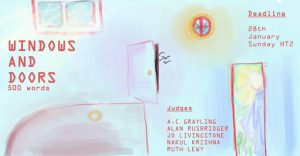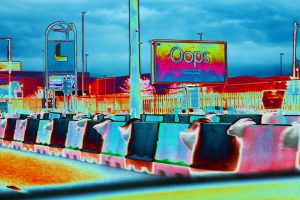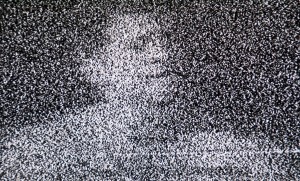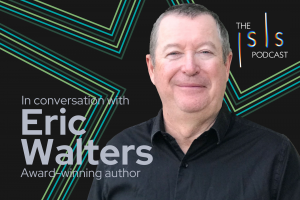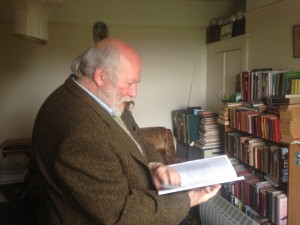
On becoming a writer
by Peter Endicott | June 5, 2013
For A.S. Byatt boarding school paved the way to time spent at Cambridge, and toward a career that boasts over ten novels, short stories, essays, poetry, and an assortment of literary criticism. Her works feature a vast range of characters, from modern day academics to Norse gods, while her awards include the 1990 Booker prize for her novel, Possession. The need to write can take hold at any place, at any point. Author Haruki Murakami has said his desire first struck when watching a baseball game at the age of thirty. Milton wrote the majority of Paradise Lost in his fifties, blind, creating through dictation. Byatt writes in an email that, ‘‘I can’t remember a time when I wasn’t writing, from the moment I could read. I wrote two novels in boarding school, one about horses and one about a boy disguised as a girl in a boarding school.’’ Such activity Byatt believes, which continued throughout her University years, and led to the novels The Game and The Shadow of the Sun, was unrelated, or at least separated, from the desire for a life as an author: ‘‘I think I should describe myself as someone obsessed with writing, rather than someone with any idea of what it meant to be an author. I never showed anyone what I was writing and didn’t publish in things like Granta.’’ And what became of her boarding school novels? ‘‘I put them in the school furnace when I left.’’
If her first works did not make it with her to Newnham College, Cambridge, a continuing desire to write survived. Added to her experience at this point was a difficulty faced by almost all undergraduates, concerning how to organise the twenty-four hours in a day. ‘‘I felt guilty if I was writing and guilty if I was doing my academic work and so got paralysed – particularly in my final year. The dons were very understanding at Newnham – they said ‘Take a day off each week and write’ so I tried that.’’ Difficulties for aspiring authors arising from an English degree at Cambridge in the 1950s were not restricted to time management however. A new perception of literary criticism was being built up by critics such as F.R. Leavis, who taught at Cambridge. As Byatt points out, ‘‘His influence produced a generation of wonderful school teachers who really believed literature mattered and could change the world. But Leavis’ unswerving power of condemnation and disgust with the approximate success was very daunting to would-be writers.’’ This environment was readily coupled to the general intimidation a writer may understandably experience when reading great authors. Byatt continues by describing this additional factor, ‘‘the other difficulty was the greatness of the writers I was studying – reading Donne or Coleridge made me both want to write and be afraid of failure.’’
However, it was reading that sustained Byatt’s writing. She notes certain books from her time at University that went on to be particularly relevant for her career as an author: ‘‘What comes to mind oddly is two works of criticism – Coleridge’s Biographia Literaria and the selected essays of T.S.Eliot – I think both of these ‘placed’ my desire to write and the kind of formal intelligence I needed to work out. I always answered exam questions on poets rather than novelists because you could carry whole poems in the brain and quote intelligently. I loved the metaphysical poets.’’ And if the formidable works of Donne and Coleridge frightened, formidable works simultaneously encouraged: ‘‘Middlemarch, A la Recherche du Temps Perdu, and Thomas Mann’s novels and stories all influenced the way I form the writing – with leitmotifs and what I call the ‘controlling metaphors’. The web in Middlemarch, and my discovery of it, were one of the important moments in my life.’’
After Cambridge, Byatt continued literary study: ‘‘I supposed gloomily that I needed a way of earning a living, and went on to do graduate work – on religious allegory in the seventeenth century. I was trying to work out the difference between characters in novels and characters in allegories.’’ She now notes that the world she entered into as an aspiring author was sympathetic when compared to the twenty-tens. ‘‘I was lucky – I sent my first novel to John Beer, whose Coleridge book I admired very much, and he sent it to his publisher, who was Cecil Day Lewis, who accepted it. I think now a young author would probably need to find an agent – the right sort of agent – and this is very difficult and competitive.’’ And she continues, noting that agents are not the only additional difficulty faced by today’s aspiring writers: ‘‘publishers are being more ruthless with honourable books that don’t sell large numbers of copies… Another problem these days – for good literary writers – is the prevalence of niche publishing and the power of the marketing department – is it a gay novel, a woman’s novel, a fantasy? Marketing is a kind of ghetto in some ways.’’
Differences in the process of being published for the first time have taken place alongside changes to how writers learn, and how they are taught. Creative writing courses are now the route taken by many who go on to achieve significant success as authors. The University of East Anglia alone counts Kazuo Ishiguro, Ian McEwan, and Anne Enright amongst its alumni. The course, however, was only founded the decade following Byatt’s graduation. Byatt highlights that, as for those beginning to write in the 1950s, both positives and negatives exist for those who study creative writing: ‘‘I read a review recently of a novel I had read and admired which criticised it for not having good “character development”. That sounds to me like an artificial construction you’d meet in a creative writing course. Ticking off boxes. The characters in that novel are clear and moving and we are told everything we need to know.’’ She continues however, ‘‘I have many writer friends who earn their living by teaching creative writing – people I’d love to spend time with, discussing language and meaning and form… I was at Cambridge with Sylvia Plath who had been taught creative writing by Theodore Roethke and had at her command a technical mastery I was amazed by. Which meant she could say what she urgently needed to say.’’ Byatt highlights a strand of all creative writing courses that is not unique to such a degree. Reading. And this is one aspect of an author’s education that has remained unchanged since long before Ishiguro wrote about Butlers, or Byatt about boys and girls at boarding school. ‘‘In the end it comes down to reading – whether on courses or in bed at night – greedy reading and analytic reading.’’
